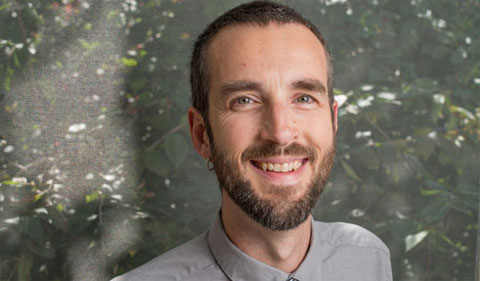
Creative writing doctoral student, Kirk Wisland
Kirk Wisland, creative writing doctoral student, conducted research for his nonfiction project on his family history and the AIDS crisis.
He was awarded a competitive scholarship from Ohio University’s English Department, one of eight to students who are conducting research for their respective dissertations and projects.
ABSTRACT: My father will probably die of a heart attack, like his mother, dead at 42 in a farm field. Or a stroke, or complications from diabetes, or from leukemia, like his father, dead at 67. Any of these deaths would in themselves constitute a minor miracle—an impossibly normal, pedestrian end that was unimaginable in 1986, when he first told me that he was HIV-positive.
Yet 30 years later my father is still standing, thanks to a near-miraculous genetic resistance. That’s a bonus quarter-century we’ve been given, unlike the millions of gay men who died in those intervening years.
This is the story I must tell—the story of a gay man born in rural Minnesota during the postwar baby-boom, a man who suffered immense heartache, who struggled to stay in the closet, turned to the bottle to “drink himself straight.” A man who married and fathered a son, before finally coming to terms with his sexuality in the late 1970s, during a brief window of liberation before the devastation of the oncoming AIDS crisis. This is the story of one of the longest-surviving HIV-positive men in the United States, a story irrevocably intertwined with my own.
I came of age in the shadow of fear, and yet have lived long enough now to see marriage equality enshrined in all 50 states. The story I have to tell is part biography, part memoir, and part cultural history. I cannot narrate the biography of a survivor without telling my own story. And I cannot tell the story of these two men without telling an inherently American story, of a half-century of progress and oppression, of that “arc of history bending closer to justice.”



















Comments